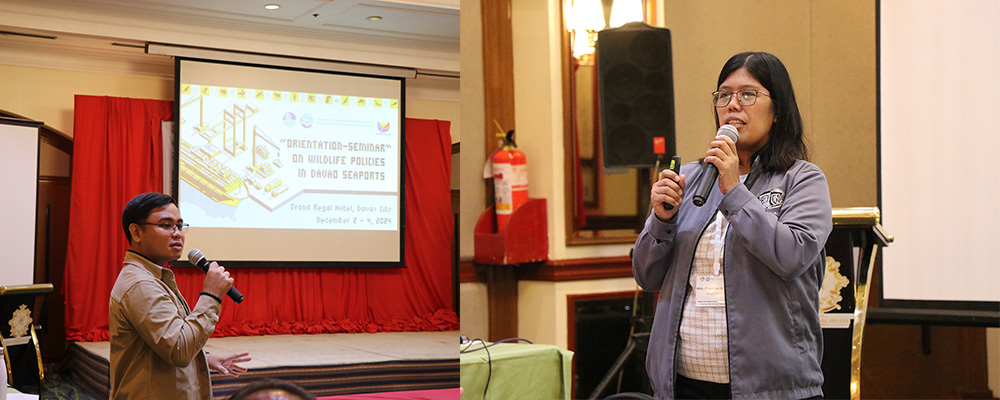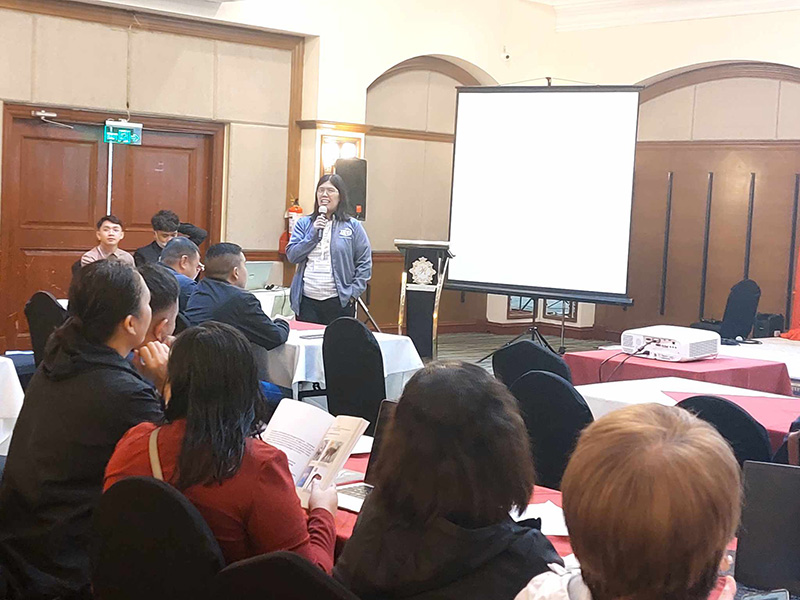As in the past seaport campaigns, TK assisted in the facilitation of the Orientation Seminar on Wildlife Policies in Davao Seaports last _______.
TK’s Executive Director Atty. Fritzielyn Palmiery discussed the Wildlife Enforcement Protocols and provided a case study on wildlife law enforcement on seaports as participants’ workshop. While the discussion on the PortMATE tool was provided by one of the TK’s Staff Lawyers, Atty. Mark Martinez. Aside from the discussion of the PortMATE tool, Atty. Martinez also presented the previous port assessment conducted in Lipata and Nasipit Port both in Region 13, North and South Harbor, as well as Manila International Container Terminal in the National Capital Region (NCR) and Domestic and International Ports in Cebu City located at Region 7.

Illegal wildlife trade or popularly known as “wildlife trafficking” encompasses a broad spectrum of commodities traded domestically and internationally, with different methods of smuggling, transit routes, transport modes, and markets (TRAFFIC Southeast Asia, and Asch, 2016). Transport vehicles such as sea vessels in seaports are no exception.
In 2023, the Biodiversity Management Bureau (BMB), in collaboration with Tanggol Kalikasan (TK) and with the support of the DENR Region 11 Enforcement Division, conducted an assessment of the Sasa International Seaport using the Port Monitoring and Anti-Trafficking Evaluation Tool (PortMATE). Following the recommendations from the assessment workshop and in line with the Memorandum of Understanding (MOU) between the DENR-BMB and the Philippine Ports Authority (PPA), the Bureau held an orientation on wildlife policies. The orientation covered wildlife law enforcement action plans, protocols, and tools aimed at combating illegal wildlife trade for personnel at all ports under the supervision of PPA Davao.
To guide the participants in conducting port assessment, BMB distributed the publication How To Conduct Port Assessment to Combat IWT: A Guide to Government Agencies and Partners.

